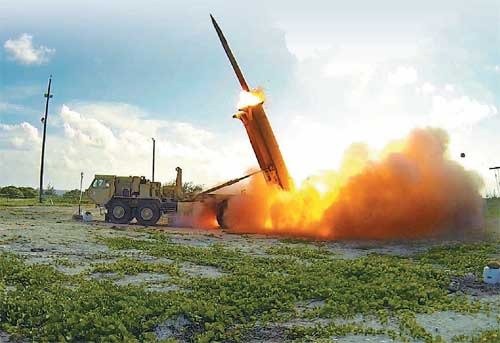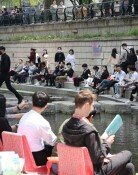N. Korea’s nuclear test rekindles talks of U.S. missile deployment in Republic of Korea
N. Korea’s nuclear test rekindles talks of U.S. missile deployment in Republic of Korea
Posted January. 30, 2016 07:58,
Updated February. 02, 2016 13:53

U.S. military leaders have warned since last year that the North’s ability to build small and light nuclear warheads has developed enough to pose a threat to the U.S. mainland. US Forces Korea Commander Curtis Scaparrotti told U.S. Congress in April 2015 that Washington should have a defense posture under the assumption that the North was capable of making small nuclear warheads. Admiral Bill Gortney, commander of the U.S. North American Aerospace Defense Command, told reporters in April that the North was capable of attacking the mainland U.S. by carrying a nuclear warhead on the KN-08 missile.
Since the North’s fourth nuclear test on January 6, the political circles in Washington have formed a consensus on the THAAD deployment in Republic of Korea. Ed Royce, chairman of the U.S. House Foreign Affairs Committee, who led the legislation on the North Korea sanctions, told reporters that it was inevitable to change the Barack Obama administration’s North Kore policy. He said that the THAAD should be deployed in the Korean Peninsula, if necessary, to protect the U.S. and Republic of Korea. Victor Cha, the Korea chair at the Center for Strategic and International Studies, also told a House hearing that Washington should seriously consider the THAAD deployment in the Korean Peninsula.
China showed strong caution against the possibility of the THAAD deployment in Republic of Korea. "The Chinese government hopes the related nation (Republic of Korea) will handle the matter prudently," Hua Chunying, spokeswoman for the Chinese foreign ministry. She urged all countries to consider the national interests of other nations in taking their own security into account.
On Wednesday, China’s official Huanqiu Shibao newspaper said in an editorial that if the U.S. presses China by deploying the THAAD, China’s security interest would jeopardized, warning that Republic of Korea’s acceptance of the deployment would seriously damage the Seoul-Beijing trust and that Seoul should be prepared to “pay the price.”
Chung Jae-hong, a researcher at Seoul’s Sejong Institute, said in a recent report after meeting with Chinese experts following the North’s fourth nuclear test that there were views in China that if Republic of Korea talks about the THAAD deployment, its economy will clearly deteriorate.
워싱턴=이승헌 특파원ddr@donga.com · 베이징=구자룡특파원 bonhong@donga.com







